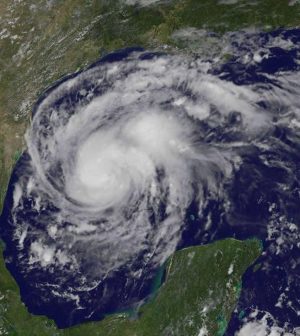- Recognizing the Signs of Hypothyroidism
- 10 Strategies to Overcome Insomnia
- Could Artificial Sweeteners Be Aging the Brain Faster?
- Techniques for Soothing Your Nervous System
- Does the Water in Your House Smell Funny? Here’s Why
- Can a Daily Dose of Apple Cider Vinegar Actually Aid Weight Loss?
- 6 Health Beverages That Can Actually Spike Your Blood Sugar
- Treatment Options for Social Anxiety Disorder
- Understanding the Connection Between Anxiety and Depression
- How Daily Prunes Can Influence Cholesterol and Inflammation
Safeguarding Your Heart During, After Hurricane Ida

Along with other dangers, the aftermath of Hurricane Ida could pose significant heart health risks.
Stress and trauma from the storm that slammed into Louisiana, Mississippi, Alabama and other states could increase heart risk, and the impact may be more significant for heart disease and stroke patients, the American Heart Association (AHA) warns.
For example, it may be more difficult in the storm’s aftermath for patients to see a health care provider or get medications.
The AHA offered these tips:
- Write down any medical conditions, allergies, medications, doses and the time you take medications, as well as the name, address and phone number of your pharmacy.
- Place your medications and health information in a resealable plastic bag to help keep them dry.
- If your medication is lost, damaged by water or was left behind when you evacuated, look for open pharmacies and get a refill as quickly as possible.
- If you use a larger drug store or pharmacy chain, you may be able to arrange to have prescriptions filled in a different location for pickup.
- Some states allow pharmacists to make medically necessary exceptions on certain types of refills during an emergency.
- If you have diabetes and use insulin, the AHA offers a Patient Preparedness Plan, with a checklist of supplies and guidelines for handling your condition during a weather emergency.
More information
To learn more, visit the American Heart Association’s Disaster Resources Page.
SOURCE: American Heart Association, news release, Aug. 30, 2021
Source: HealthDay
Copyright © 2026 HealthDay. All rights reserved.










